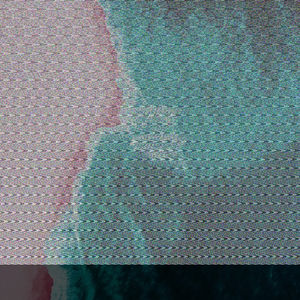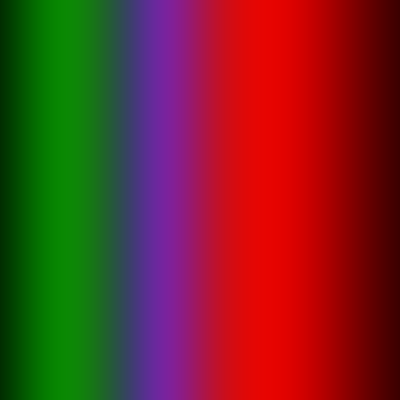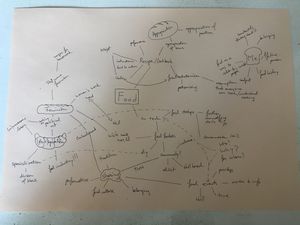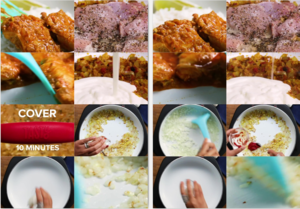User:Alice/Experiments: Difference between revisions
No edit summary |
|||
| Line 27: | Line 27: | ||
</source> | </source> | ||
[[File:Test2.png|400px]] | [[File:Test2.png|400px]] | ||
=Hackpacts= | |||
===Essay on the recipe=== | |||
Eating is always much more than eating. | |||
Rinse, peel, chop, slice. Fry, sear, roast, grill. The pieces of the algorithm are interchangeable, but only by respecting the order of the operations, repeating the steps, you will get to the same result. In every single operation hides a world of knowledge. Where we are now, it all depends on trial and error. | |||
So what makes code, algorithms, programming so similar to instructions, recipes, cooking? Or is it a stretch to compare the two? | |||
Many (programmers) have attempted to explain programming to 'the people' by imagining a computer program to function 'just like a recipe'. The assumption here is that cooking is easy, everybody likes to cook, everybody can understang cooking. What shapes can that take? | |||
In this example (http://www.cs4fn.org/programming/recipeprogramming.php), the author is quick to note that 'Programmers are the master chefs of the computing world - except the recipes they invent don't just give us a nice meal, they change the way we live.' His claim seems to be: the two are similar, but, of course, cooking is infinitely more trivial than programming, because the latter has lifechanging capacities. | |||
Others have tried to provide simplified explanations for different concepts, through the medium of a recipe. In Algorithmic Kitchen, the author tries to explain big data by using a standard format for a recipe. | |||
===Plan for a NLP expercise with recipes=== | |||
===Mind map=== | |||
[[File: Mindmap.JPG|300px|Mind map]] | |||
===Exercise idea=== | |||
Write down a full day's menu from the past week. Wrote down an imaginary full day's menu from when you were back home (if from here, when you were living with parents). What has changed and what has remained the same? Why? What are the current influences over your daily menu? What would you like to change? | |||
===Workshop idea=== | |||
Take one dish that is easy and convenient to make (e.g. Guacamole). The ingredients you conveniantly have on the table, which can be purchased at any shop around the city, have travelled a long way to come to you. Can we retrace the routes of this dish? Where does each ingredient come from? | |||
Steps: | |||
* Locate the provenience of each ingredient on the map, as accurately as possible (location of plantation, factory, etc) | |||
* Research/imagine the possible route - by ship, train, etc up until the Netherlands/Rotterdam/Albert Heijn/this workshop | |||
* Trace the route and export it, then turn it into a pdf | |||
* Write down the recipe including these steps | |||
* Make guac, enjoy | |||
===Reimagining the visualisation of recipes=== | |||
[[File: Food_flipbook.png|300px|Flipbook]] | |||
Revision as of 13:07, 22 October 2018
Generating flipbooks from YouTube videos
The script and documentation for this can be found here.
Sound to image
Experiments with translating sounds and tones to raw data, and then to images.
The resulting image can be superimposed with other images, such as photos and gradients.
Experiments with generating a gradient using Python
import math
from PIL import Image
im = Image.new('RGB', (1000, 1000))
ld = im.load()
def gaussian(x, a, b, c, d=0):
return a * math.exp(-(x - b)**2 / (2 * c**2)) + d
for x in range(im.size[0]):
r = int(gaussian(x, 231.3135, 666, 201.5447) + gaussian(x, 17.1017, 395.8819, 45))
g = int(gaussian(x, 129.9851, 157.7571, 108.0298) + gaussian(x, 27.6831, 399.4535, 143.6828))
b = int(gaussian(x, 3000, 3000, 8.0739) + gaussian(x, 158.8242, 402, 87.0739))
for y in range(im.size[1]):
ld[x, y] = (r, g, b)
im.save('test2.png', 'PNG')
Hackpacts
Essay on the recipe
Eating is always much more than eating. Rinse, peel, chop, slice. Fry, sear, roast, grill. The pieces of the algorithm are interchangeable, but only by respecting the order of the operations, repeating the steps, you will get to the same result. In every single operation hides a world of knowledge. Where we are now, it all depends on trial and error.
So what makes code, algorithms, programming so similar to instructions, recipes, cooking? Or is it a stretch to compare the two?
Many (programmers) have attempted to explain programming to 'the people' by imagining a computer program to function 'just like a recipe'. The assumption here is that cooking is easy, everybody likes to cook, everybody can understang cooking. What shapes can that take? In this example (http://www.cs4fn.org/programming/recipeprogramming.php), the author is quick to note that 'Programmers are the master chefs of the computing world - except the recipes they invent don't just give us a nice meal, they change the way we live.' His claim seems to be: the two are similar, but, of course, cooking is infinitely more trivial than programming, because the latter has lifechanging capacities.
Others have tried to provide simplified explanations for different concepts, through the medium of a recipe. In Algorithmic Kitchen, the author tries to explain big data by using a standard format for a recipe.
Plan for a NLP expercise with recipes
Mind map
Exercise idea
Write down a full day's menu from the past week. Wrote down an imaginary full day's menu from when you were back home (if from here, when you were living with parents). What has changed and what has remained the same? Why? What are the current influences over your daily menu? What would you like to change?
Workshop idea
Take one dish that is easy and convenient to make (e.g. Guacamole). The ingredients you conveniantly have on the table, which can be purchased at any shop around the city, have travelled a long way to come to you. Can we retrace the routes of this dish? Where does each ingredient come from?
Steps:
- Locate the provenience of each ingredient on the map, as accurately as possible (location of plantation, factory, etc)
- Research/imagine the possible route - by ship, train, etc up until the Netherlands/Rotterdam/Albert Heijn/this workshop
- Trace the route and export it, then turn it into a pdf
- Write down the recipe including these steps
- Make guac, enjoy




